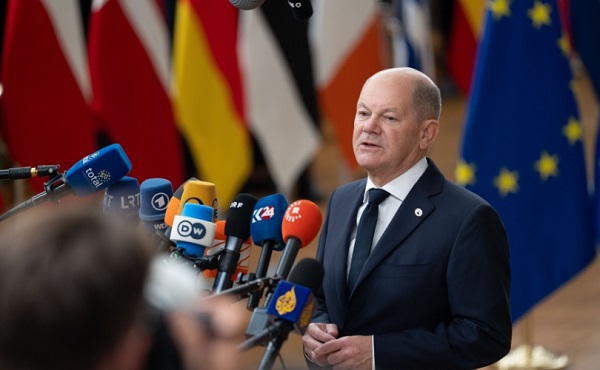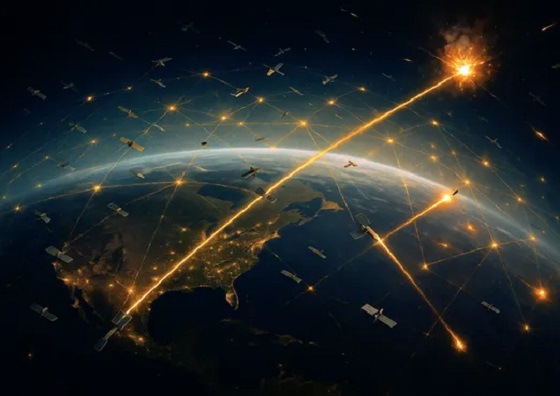International
German chancellor loses vote of confidence in parliament, likely triggering snap election

From LifeSiteNews
German President Frank-Walter Steinmeier is expected to set February 23 as the date for an election
German Chancellor Olaf Scholz has lost the vote of confidence in the Bundestag (German Parliament) after the breakdown of the government coalition.
On December 16, members of the Bundestag voted 394-207 against Scholz, with 116 abstentions. The vote of confidence was seen as a formality, and Scholz was expected to lose after the liberal FDP (Free Democratic Party) left the government coalition in early November.
As the German Tagesschau reported, Scholz met German President Frank-Walter Steinmeier at Bellevue Palace after the vote and asked him to dissolve the Bundestag.
Steinmeier has 21 days to decide whether he agrees and calls a snap election within 60 days. He is expected to do so and announce February 23 as the date. Had the coalition not dissolved, the next regular federal election would have taken place in September 2025.
Since the vote was only a formality, the parties used the debate in Parliament to campaign for the upcoming election. Scholz used his speech to launch an attack against the FDP. The “weeks of sabotage” by the Liberals under party leader Christian Lindner had not only damaged the coalition government but also democracy as a whole, he claimed.
CDU/CSU leader Friedrich Merz responded by defending the FDP and called the attack on Lindner “sheer insolence.”
Merz accused Scholz of leaving the country in one of the biggest economic crises in post-war history and failing at the EU level. “You are embarrassing Germany,” he stated. The Chancellor’s behavior in the European Union was “shameful,” Merz said.
Alice Weidel, co-head of the AfD (Alternative for Germany), slammed the left-wing government coalition, stating that its “damage” would burden Germany for decades to come. She pointed to the “decline” of the automotive and mechanical engineering industries and the exodus of the chemical industry due to “exploding energy costs.”
She viewed Donald Trump’s election as an opportunity to end the war in Ukraine through diplomacy while criticizing Scholz and Merz for making a “pilgrimage” to Kyiv to “throw even more good money after the money that has already been burned.”
Weidel warned that deploying German troops in Ukraine would risk Germany becoming a party to the war. She also stressed that “anyone who votes for Friedrich Merz is voting for war.”
The federal government will remain in office after losing the vote of confidence until the election of a new Parliament. However, the current coalition consisting of Scholz’s SPD (Social Democratic Party) and the Greens does not have the necessary majority and needs members of the opposition to vote alongside them if they want to pass any new laws.
Business
Canada’s critical minerals are key to negotiating with Trump

From Resource Works
The United States wants to break its reliance on China for minerals, giving Canada a distinct advantage.
Trade issues were top of mind when United States President Donald Trump landed in Kananaskis, Alberta, for the G7 Summit. As he was met by Prime Minister Mark Carney, Canada’s vast supply of critical minerals loomed large over a potential trade deal between North America’s two largest countries.
Although Trump’s appearance at the G7 Summit was cut short by the outbreak of open hostilities between Iran and Israel, the occasion still marked a turning point in commercial and economic relations between Canada and the U.S. Whether they worsen or improve remains to be seen, but given Trump’s strategy of breaking American dependence on China for critical minerals, Canada is in a favourable position.
Despite the president’s early exit, he and Prime Minister Carney signed an accord that pledged to strike a Canada-US trade deal within 30 days.
Canada’s minerals are a natural advantage during trade talks due to the rise in worldwide demand for them. Without the minerals that Canada can produce and export, it is impossible to power modern industries like defence, renewable energy, and electric vehicles (EV).
Nickel, gallium, germanium, cobalt, graphite, and tungsten can all be found in Canada, and the U.S. will need them to maintain its leadership in the fields of technology and economics.
The fallout from Trump’s tough talk on tariff policy and his musings about annexing Canada have only increased the importance of mineral security. The president’s plan extends beyond the economy and is vital for his strategy of protecting American geopolitical interests.
Currently, the U.S. remains dependent on China for rare earth minerals, and this is a major handicap due to their rivalry with Beijing. Canada has been named as a key partner and ally in addressing that strategic gap.
Canada currently holds 34 critical minerals, offering a crucial potential advantage to the U.S. and a strategic alternative to the near-monopoly currently held by the Chinese. The Ring of Fire, a vast region of northern Ontario, is a treasure trove of critical minerals and has long been discussed as a future powerhouse of Canadian mining.
Ontario’s provincial government is spearheading the region’s development and is moving fast with legislation intended to speed up and streamline that process. In Ottawa, there is agreement between the Liberal government and Conservative opposition that the Ring of Fire needs to be developed to bolster the Canadian economy and national trade strategies.
Whether Canada comes away from the negotiations with the US in a stronger or weaker place will depend on the federal government’s willingness to make hard choices. One of those will be ramping up development, which can just as easily excite local communities as it can upset them.
One of the great drags on the Canadian economy over the past decade has been the inability to finish projects in a timely manner, especially in the natural resource sector. There was no good reason for the Trans Mountain pipeline expansion to take over a decade to complete, and for new mines to still take nearly twice that amount of time to be completed.
Canada is already an energy powerhouse and can very easily turn itself into a superpower in that sector. With that should come the ambition to unlock our mineral potential to complement that. Whether it be energy, water, uranium, or minerals, Canada has everything it needs to become the democratic world’s supplier of choice in the modern economy.
Given that world trade is in flux and its future is uncertain, it is better for Canada to enter that future from a place of strength, not weakness. There is no other choice.
International
Trump puts new price tag on Canada joining “Golden Dome”

Quick Hit:
President Trump has upped the cost for Canada to join the U.S. “Golden Dome” missile defense program to $71 billion—$10 billion more than his previous ask.
Key Details:
- Trump confirmed the new $71 billion figure while speaking to reporters aboard Air Force One.
- Canada has pushed back, with PM Mark Carney and diplomats calling Trump’s offer a “protection racket.”
- Trump said Canada could access the system for free if it became the 51st U.S. state.
Diving Deeper:
President Trump has put a new and steeper price on Canada’s potential entry into America’s “Golden Dome” missile defense program. Speaking from Air Force One on Monday, Trump told reporters, “They want to be in… Seventy-one billion they’re going to pay.”
That’s a $10 billion increase from the $61 billion figure Trump had previously floated, marking a sharp escalation in his negotiations with Ottawa. The Golden Dome, described by the administration as a “state-of-the-art” defense shield, aims to protect North America from a new era of missile threats—particularly those posed by China, Russia, and North Korea.
Trump has framed the Golden Dome as the long-awaited realization of Ronald Reagan’s “Star Wars” vision, using space-based sensors and interceptors to strike down incoming ballistic, cruise, or hypersonic missiles. Development timelines suggest full deployment is still 5–7 years off, but an initial $25 billion is already allocated in next year’s defense budget. The entire project may run upwards of $175 billion, with some estimates as high as $542 billion over 20 years.
Canada, which has long partnered with the U.S. under NORAD to detect airborne threats, has expressed interest in joining the project. But Trump is demanding a separate, costly buy-in. He reiterated that Ottawa would “have to pay a lot of money” to participate unless it pursued a full political union with the U.S. “It would be free if Canada became the 51st state,” he added.
Canadian leaders have pushed back hard. Prime Minister Mark Carney, re-elected in April after campaigning against U.S. interference, said Canada wants to protect its citizens but not under terms dictated from Washington. Ambassador to the U.N. Bob Rae went further, calling Trump’s offer a “protection racket.”
-

 conflict2 days ago
conflict2 days agoTrump leaves G7 early after urging evacuation of Tehran
-

 Business2 days ago
Business2 days agoTrump family announces Trump Mobile: Made in America, for America
-

 Crime2 days ago
Crime2 days agoUK finally admits clear evidence linking Pakistanis and child grooming gangs
-

 International1 day ago
International1 day agoTrump not seeking ceasefire with Israel, Iran as he rushes back to White House
-

 Business1 day ago
Business1 day agoThe CBC is a government-funded giant no one watches
-

 conflict1 day ago
conflict1 day agoMiddle East clash sends oil prices soaring
-

 conflict1 day ago
conflict1 day agoTrump Threatens Strike on Khamenei as Israel Pounds Iranian Military Command
-

 Alberta1 day ago
Alberta1 day agoAlberta is investing up to $50 million into new technologies to help reduce oil sands mine water





